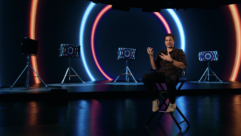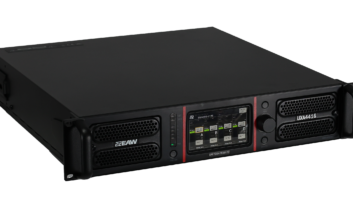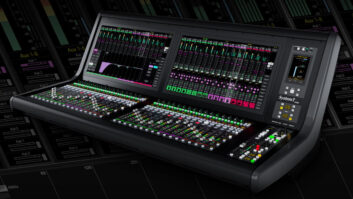
What Did You Do When You Heard the J. K. Rowling News?
Jul 15, 2013 10:21 AM,
By Jason Bovberg
A test of your devotion to physical books versus e-books.

You’ve heard the news. An excellent mystery novel released in April 2013—The Cuckoo’s Calling by Robert Galbraith—was just revealed to have been pseudonymously written by none other than J. K. Rowling of Harry Potter fame. When the news was announced, the blogosphere went insane, the book launched from obscurity to number one bestseller, and people around the world bombarded their local bookstores to try to get their hands on a copy. Fortunately, I heard the news not long after it was announced, and so I managed to find a first-edition copy rather easily so that I could add it to my collection. But as quickly as the next day, the book was scarce everywhere.
I bring this up because it emphasizes the dichotomy that still exists within the realm of books. Personally, and obviously, I’m still very much in the physical-book mindset. My first reaction to the Rowling news, as I said, was to rush out and find a first-edition hardcover. It’s ingrained in my psyche. I view books as much more than their text; to me, they’re works of art that comprise not only the text but the cover art, the design, the feel of the pages, the heft, the look. But, as I’ve mentioned before (in “The End of Everything”), that’s a dying perspective. The majority of people hearing this news probably simply added the e-book to their Kindle archive.
Every once in a while, we see a phenomenon like this breathe new life into the would-be corpse that is the physical book. Last year, Fifty Shades of Grey boosted the profits of brick-and-mortar bookstores worldwide, letting those stores survive at least a little while longer. They were only scraping by with sales of all their other titles, but that one trilogy seemed to ward off the inevitable. There are other efforts to stave off a slow death, such as Stephen King’s recent decision to release his Hard Case Crime mystery Joyland only in a physical incarnation.
But let’s face it: Just like music, books are destined for digital distribution. More and more people are consuming their literature and non-fiction on media tablets such as the Microsoft Surface and Apple iPad. Once my wife got her Kindle, she never went back to “dead tree” books again. She wouldn’t think of reading an actual book, regarding them as antiquated and unwieldy methods of text distribution that were long overdue to go extinct. This point of view makes me terribly sad, of course, but the perspective is in line with the rest of the world.
Barnes & Noble—the only real remaining national brick-and-mortar bookseller, after the sad demise of Borders—has seen its profits decline gradually over the past decade. I’ve seen large swaths of Barnes & Noble real estate taken over by toys and games as book buyers have reined in their impulses and tried to divert energies to the company’s Nook line of digital e-readers. And now, ominously, even that effort has proven fruitless, as the company has stated it will no longer be building its Nook devices—seemingly in a last-ditch effort to save stores! Barnes & Noble Chairman and Founder Leonard Riggio wants to keep the chain invested in the brick-and-mortar stores rather than on e-books and tablets. And for that, I love the dude.

It’s a volatile time in the book world. Even the independent shops are struggling—seemingly more so than when stores like Barnes & Noble were blamed for their hardships late last century. More and more indy shops are folding, or they’re incorporating used books into their inventory. The world-renowned Tattered Cover bookstore in Denver has chosen this latter model in a bid to fill their shelves with cheap stock. The move is representative of a sad decline from the joyous heyday of book buying and publishing.
So what’s the future of books? In the world of the connected home, they’re already a huge element of the digital revolution. You can download e-books to any connected device, including your smartphone. This is one of the key advantages of e-books—portability. You might start a book on your Kindle at night, then find some free time in the dentist’s office in the afternoon and pick up where you left off on your phone. Then, after dinner, you can jump right back in on your Surface or iPad, and finish off the day on your Kindle. Books are as portable as songs or photos now.
I know there remain many people out there who shudder at the notion that physical books will go away. I don’t see that happening any time soon. CDs are still being pressed in great abundance, and you can bet books will be around for far longer than those. Still, just as the CD is losing favor over time, dropping in price and giving way to more and more digital downloads to younger and younger crowds of consumers, so will physical books become decreasingly relevant. They won’t disappear in my lifetime.
But big brick-and-mortar book superstores will. I’ve come to terms with that.
If Barnes & Noble is smart, it will adapt over time to a smaller model, reducing its lease obligations and inhabiting smaller stores. In a bit of irony, perhaps the company will find itself re-establishing its presence in malls, providing an outlet for that vocal—and not entirely insignificant—percentage of people (like me) who will never feel comfortable reading a book on a device. This model would also provide a place for publishers to bring limited edition hardcovers to market; hardcovers that were once commonplace but are now limited runs targeted at the old-school consumer. Indeed, several authors and publishers are even now attempting such a route; George Pelecanos last year released his thriller What It Was simultaneously as a limited hardcover, a trade paperback, and an e-book—catering nicely to all audiences. Yes, publishers are experimenting in this new reality, today.
You can bet prices will leap upward in such a future scenario, but readers (and collectors) like me will pay for that privilege.










